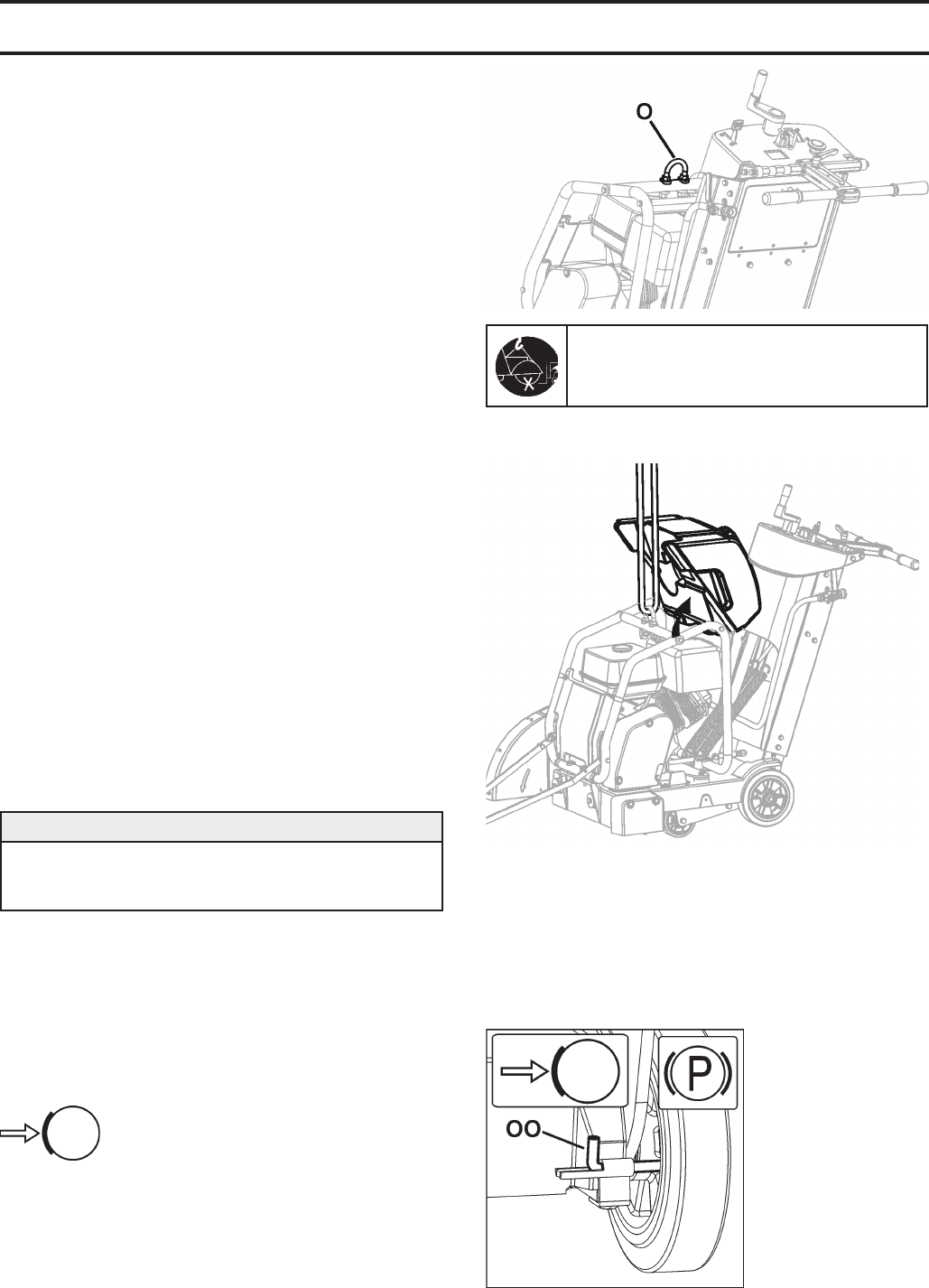
22
Transporting & Lifting Machine:
• Lift machine only from Lifting Point (O).
• Always remove Blade (H) before lifting, loading, or trans-
porting.
• Use a proper lifting strap rated for at least the maximum
mass of the machine. The nominal and maximum mass
of the machine are shown in the TECHNICAL DATA sec-
tion of this document.
Lifting machine equipped with Water Tank:
• Before lifting a machine equipped with a water tank:
1. Empty water from tank.
2. Remove Blade.
3. Lower machine until frame is parallel to ground.
4. Pivot front of water tank upward until it rests against
aluminum cowl top. Do not rest water tank cap against
plastic cowl front - damage during lifting could occur.
5. Attach proper lifting strap to Lifting Point (O).
6. Test Lift machine at a low level (just a few centimeters)
to verify tank remains secured to machine, and will not be
damaged or cause damage.
7. If water tank equiped machine can not be lifted without
damage to the machine or tank, remove water tank before
lifting.
OPERATION
Remove Blade (H) before lifting, loading,
or transporting machine.
NOTICE
Water tank or saw could be damaged if saw is not
lifted properly. Closely monitor for damage while lifting
machine.
Parking Machine:
• Machines used in some regions are equipped with a
Parking Brake.
• Parking brake is designed to hold machine in position
on a slope of 10 degrees or less, with rear of machine
on downhill side of slope (maximum weight on braked
wheel).
Parking Brake - Engage (See Diagram):
Move parking brake lever (OO) from the
dis-engaged position:
1. Pull lever (OO) toward center of machine.
2. Rotate lever (OO) upward 180 degrees.
3. A spring allows lever (OO) to move toward outside of
machine, to engage against wheel hub.


















